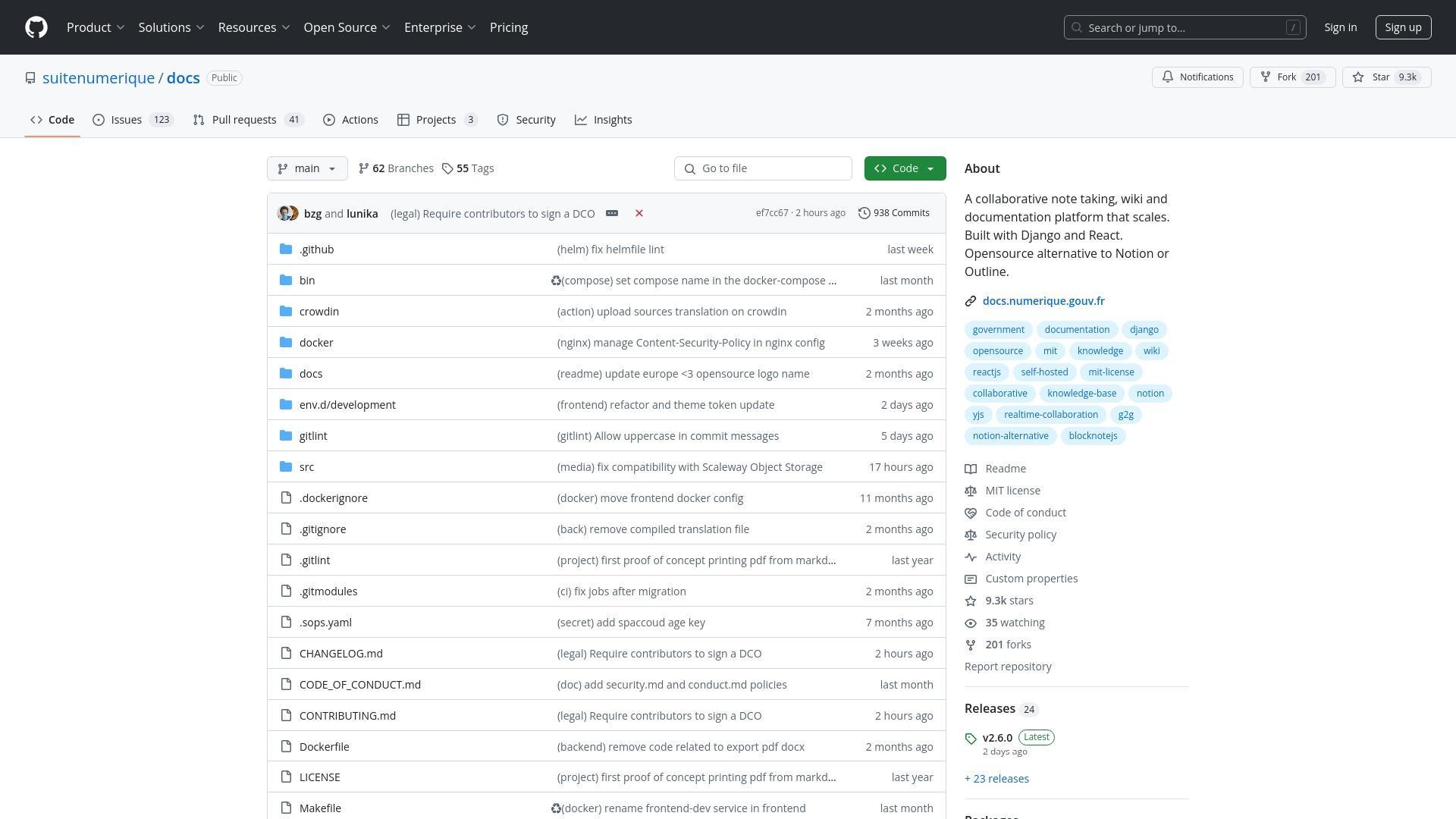In a significant move toward digital sovereignty, the French and German governments have jointly released Docs, an open source collaborative document editor designed as an alternative to proprietary platforms like Notion, Outline, and Confluence. This initiative, part of a broader suite of digital tools called La Suite Numérique, represents a growing trend of government-funded open source projects aimed at reducing dependency on foreign tech companies.
A Government-Led Open Source Initiative
Docs is built on Django Rest Framework, Next.js, BlockNote.js, HocusPocus, and Yjs, offering real-time collaboration features similar to commercial alternatives. The project is MIT licensed, explicitly inviting private sector actors to use, sell, and contribute to the codebase. This approach stands in contrast to many commercial offerings that lock users into proprietary ecosystems with recurring subscription fees.
The community response has been largely positive, with many viewing this as a strategic investment in digital infrastructure. As one commenter noted:
Public Money Public Code! With how much collaborative suites cost to government every year? 10's if not 100's of millions! They have millions of public servants. The investment to build Docs is a drop of water in the ocean in comparison.
Technical Stack
- Backend: Django Rest Framework
- Frontend: Next.js
- Editor: BlockNote.js
- Real-time collaboration: HocusPocus and Yjs
- Storage: S3-compatible object storage (Minio in default setup)
- Authentication: Supports OIDC
Beyond Cost Savings: Strategic Digital Autonomy
While cost reduction is a factor, the project also addresses broader concerns about data sovereignty and vendor lock-in. For government agencies handling sensitive information, relying on American cloud services raises concerns about data being siphoned to foreign servers. Docs provides a self-hostable alternative that keeps data under local control.
The project is part of a larger suite of tools that includes Grist (spreadsheets), Tchap (messaging based on Matrix/Element), and other applications designed to create a comprehensive open source productivity ecosystem for public servants. This approach allows governments to maintain control over their digital infrastructure while potentially saving on licensing costs.
La Suite Numérique Components
- Docs: Document editing (similar to Notion/Confluence)
- Grist: Spreadsheets and database functionality
- Tchap: Messaging (based on Matrix/Element)
- Meet/Visio: Video conferencing
Technical Features and Development Roadmap
Docs offers collaborative editing with offline support, markdown compatibility, slash commands, keyboard shortcuts, and AI-assisted features for generating and summarizing content. The platform is currently available in English, French, and German, with more languages planned through community translations on Crowdin.
The development team has indicated that sub-documents will be added before the end of the month, allowing users to create document trees with inherited permissions. Future plans include wiki functionality (estimated for February 2025) and potentially end-to-end encryption to meet military requirements.
Key Features of Docs
- Real-time collaborative editing
- Offline support with synchronization when back online
- Markdown support and slash commands
- Limited but clean formatting options
- AI actions (generate, summarize, correct, translate)
- Granular access control
- Professional document exports (.odt, .doc, .pdf)
- Self-hostable with Docker
Community Response and Broader Implications
The tech community's response highlights a growing interest in government-funded open source alternatives to commercial software. While some users have expressed concerns about the complexity of self-hosting (the current setup involves multiple Docker containers), the developers have mentioned they're working on one-click deployment solutions and an all-in-one container.
The project has sparked broader discussions about the role of governments in software development. Some view government-funded open source as an efficient use of taxpayer money that creates public goods, while others question whether governments should compete with private industry. However, many commenters pointed out that this approach can serve as a bargaining chip when negotiating with commercial vendors and helps maintain strategic digital autonomy.
As digital sovereignty becomes an increasingly important concern for governments worldwide, projects like Docs may represent a new model for public sector software development—one where governments collaborate across borders to create shared digital infrastructure that remains under public control while still enabling private sector innovation through open licensing.
Reference: Docs: The Open Source Document Editor
